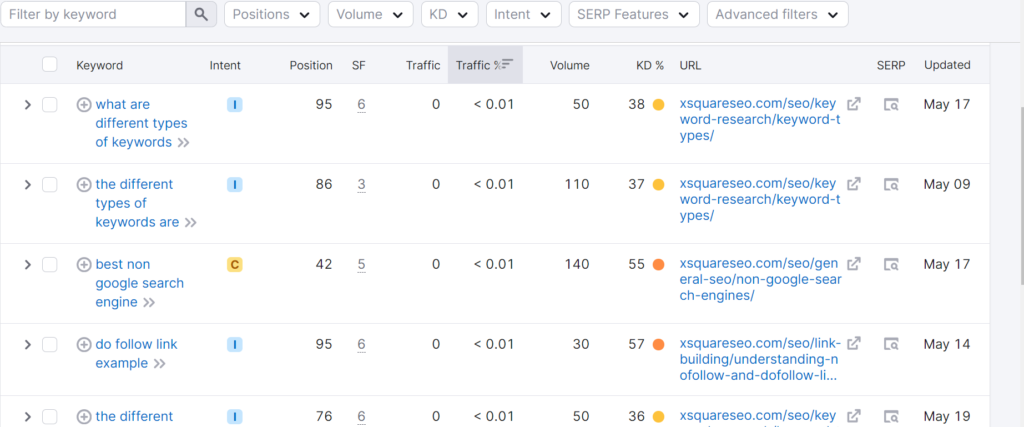For online businesses, making sure customers can find them easily on search engines like Google is super important.
That’s where SEO (Search Engine Optimization) comes in.
But how do you know if all your SEO efforts are paying off? Well, you’ve got to keep an eye on some key numbers and stats.
In this easy-to-understand guide, we’ll talk about the important metrics and analytics you need to track to see if your ecommerce SEO is doing its job.
Understanding these numbers will help you figure out what’s working, what’s not, and how to make things better.

Organic Traffic

Organic traffic means the number of people who visit your website from search results without you paying for ads.
This is a big deal because it shows how many people are finding your site through search engines.
By keeping track of organic traffic over time, you can see if your SEO efforts are bringing in more visitors.
If you notice any changes, you can adjust your SEO strategy to keep things going in the right direction.
Keyword Rankings

Keyword rankings tell you where your website pages show up in search results for specific words or phrases.
Checking keyword rankings helps you understand how visible your site is to people searching online.
If you see your site ranking higher for important keywords, it means your SEO tactics are working.
But if your rankings drop, you might need to tweak your content to match what users are looking for.
Click-Through Rate (CTR)
Click-through rate measures how many people click on your website’s link in search results compared to how many people see it.
A high CTR means your listings are catching people’s attention, while a low CTR might mean you need to make your titles and descriptions more interesting.
Keeping an eye on your CTR helps you see if your website’s listings are appealing to searchers.
Conversion Rate
Conversion rate shows the percentage of visitors who take a desired action on your site, like making a purchase or signing up for a newsletter.
This is important because it tells you if your SEO efforts are leading to real results.
If your conversion rate goes up, it means your SEO is bringing in more customers.
If it goes down, you might need to make changes to your SEO strategy or website to encourage more conversions.
Bounce Rate

Bounce rate tells you how many people leave your website after only looking at one page.
A high bounce rate could mean that visitors aren’t finding what they’re looking for or that your site isn’t easy to navigate.
By analyzing bounce rates, you can figure out if there are any issues with your website’s content or user experience that need to be fixed.
Average Session Duration
Average session duration shows how long visitors spend on your website during a single visit.
If people stick around for a while, it means they find your content interesting and valuable.
But if they leave quickly, it might mean they’re not finding what they need.
By looking at average session duration, you can figure out if your website is engaging visitors or if there’s room for improvement.
Return on Investment (ROI)
ROI measures how much money you’re making from your SEO efforts compared to how much you’re spending on them.
This is important because it helps you understand if your SEO is worth the investment.
If you’re making more money than you’re spending, it means your SEO is working well.
But if your ROI is low, you might need to rethink your SEO strategy or budget.
Backlink Profile
Your backlink profile includes all the links from other websites that point to yours.
Backlinks are important because they show search engines that your site is trustworthy and authoritative.
By keeping an eye on your backlink profile, you can see if your site is getting linked to by other reputable sites.
This can help improve your search engine rankings and drive more traffic to your site.
Conclusion
Measuring the success of your ecommerce SEO means keeping track of a bunch of different numbers and stats.
By monitoring organic traffic, keyword rankings, click-through rates, conversion rates, bounce rates, average session duration, return on investment, and backlink profiles, you can get a good idea of how well your SEO is working.
These metrics give you valuable information that can help you figure out what’s working, what’s not, and how to make things better.
By paying attention to these key numbers and using analytics tools effectively, you can make sure your ecommerce SEO is driving growth and helping you achieve your business goals.